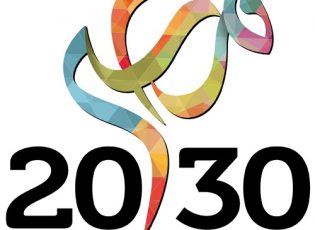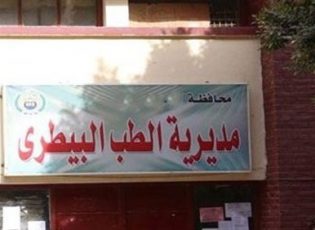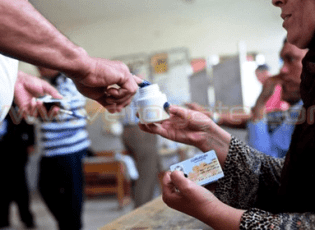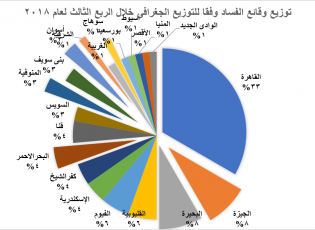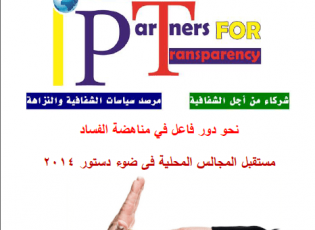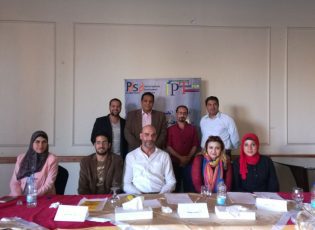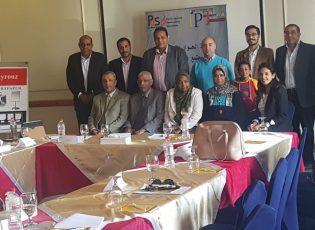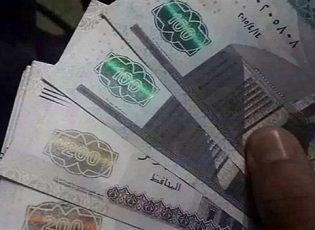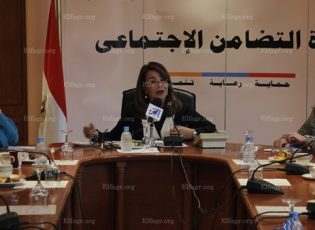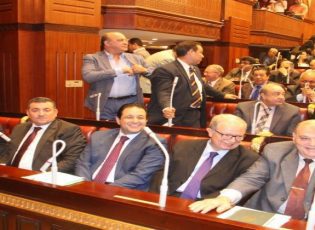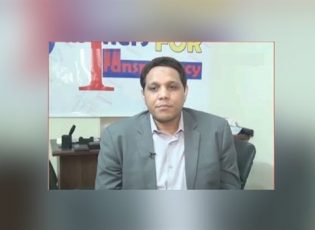The Partners for Transparency Foundation and the Al-Mahrousa Center for Economic and Social Development, in cooperation with the Arab Institute for Research and Policy, Nawaat, held a training workshop for a number of research centers, think tanks, and civil society researchers, under the title “Research approaches to develop anti-legislation Corruption and the promotion of economic and social rights, ”during the period from 15 to 16 March 2016.
The workshop aimed to empower independent research centers and non-governmental organizations to be an active party in changing legislative policies related to combating corruption and economic and social rights. ”It included three main training components, representing the first component in the general framework for combating corruption in accordance with international instruments, national legislation and procedures, and the second component dealing with instruments Human rights related to economic and social rights, while the third training component dealt with how to use the approach of public policy analysis in developing legislation and policies related to combating corruption, enhancing transparency, and improving the rates of fulfillment of economic and social rights. The workshop ended with a final discussion session to come up with recommendations to enhance communication between the research center and Parliament .
The workshop was trained in the workshop by Professor Amima Sharif, a lawyer and legal researcher, and Dr. Walaa Jad al-Karim, a consultant for research and public policy study and general manager of Partners for Transparency, and the workshop began with an opening speech by Professor Maryam Suleiman, representative of the Arab Institute for Research and Policy "Nawaat" in Egypt, and he also moderated the session The final discussion is Mr. Hani Ibrahim, Director of the Mahrousa Center, and a consultant for institutional support and training in the field of public policy development and civil society.
The workshop revealed the tendency of researchers in civil society organizations, think tanks, and research centers to integrate anti-corruption and economic and social rights issues into the research work and policy papers that they will produce in the future. They will also work to increase their research interest in the next phase with the issues and legislation that will be presented on the Parliament's agenda, especially Those related to efforts to enhance transparency, combat corruption, develop mechanisms for providing public services and improve their quality.
The trainees showed a clear interaction with the training components, especially that it provided for the majority of them a new general framework for research work, and opened new doors and entrances for them that can be used in the institutions in which they work.
The final discussion session also reached a set of important recommendations that can contribute to strengthening the link between parliament and research centers, and among the most important of these recommendations was to benefit from the experience of the Real Estate Tax Workers Union, which analyzed the civil service law and sent a comprehensive file to each parliamentarian highlighting the drawbacks of the law This led Parliament to reject the law in the end, and the session came out with a recommendation regarding the need to present research visions that take into account the position of the various stakeholders, in order to push the parliament to adopt these visions.
Cooperation between “Partners for Transparency” and “Al-Mahrousa Center for Economic Development”


